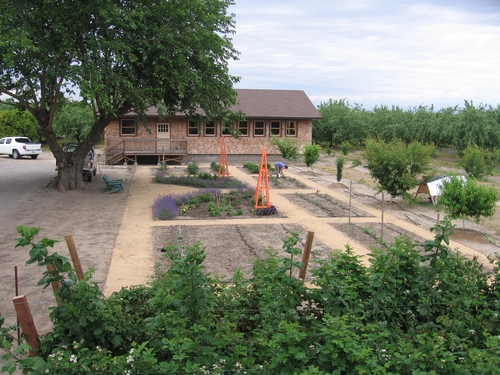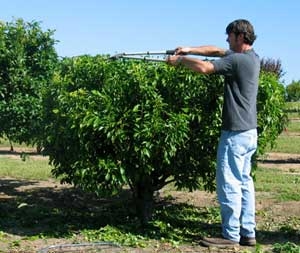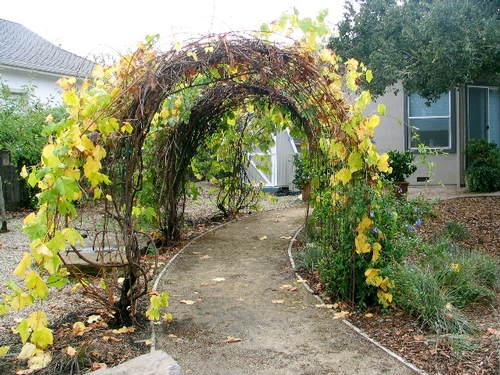Increase your food security, plant a fruit tree now!
I was struck the other day, when hearing about the world-wide soaring cost of foods, that we are incredibly lucky to live in California where food is so readily available to us. I was listening to this news on the radio as I was returning from my weekly trek to the grocery store and farmers market loaded with wonderful local whole fruits and vegetables of really high quality. I felt so fortunate and thankful at that moment that I could buy everything I wanted or pick what I wanted from my winter garden or my fruit laden citrus trees.
You can increase your own food security by planting food in your own garden . . . and you can start by planting a fruit tree now. February is the time that you can plant what are known as “bare-root” fruit trees, grapevines and berries. Fruit trees are now widely available at local nurseries or through mail order websites and catalogs.
Pick a tree fruit variety that you really love and something that you can’t purchase easily from the market. For me, this would be some of the more fragile freestone peaches such as Rio Oso Gem, or JH Hale. Or, you might pick a space saving self-pollenating variety of cherry such as Stella.
I always think great apricots are difficult to purchase in the markets so planting an apricot makes sense . . . they are relatively pest free, mostly self-fruitful and make beautiful landscape trees. My favorite apricot varieties include Patterson, Tilton and Harcot.
Just a note though, not all fruit varieties will grow in all climate zones. If you live in the San Joaquin or Sacramento valleys, then you are in luck because these are the primary stone fruit growing zones of California. If you live in the inland valleys of the coastal range, or in the foothill regions of the Sierras, you can grow most fruit varieties as well. If you are, however, on the coast or in Southern California, you may want to pick varieties that are "low chill." For information on the best varieties for your climate zone go UC's California Backyard Orchard website.
By keeping the fruit tree short, it is easier to harvest, deal with pest issues and cover with nets if you have a squirrel problem. For more information on how to prune a fruit bush or other fruit tree training systems, the UC Cooperative Extension Office in Sacramento County has an excellent horticulture note.
If you are unsure of how to choose, plant or care for your fruit trees, grapevines or berry bushes, there is a UC Master Gardener nearby who can answer your questions. Click here to find your local Master Gardener program.




Ajantha
Posted by Dr, (Mrs) Ajantha Perera on March 2, 2011 at 7:33 AM